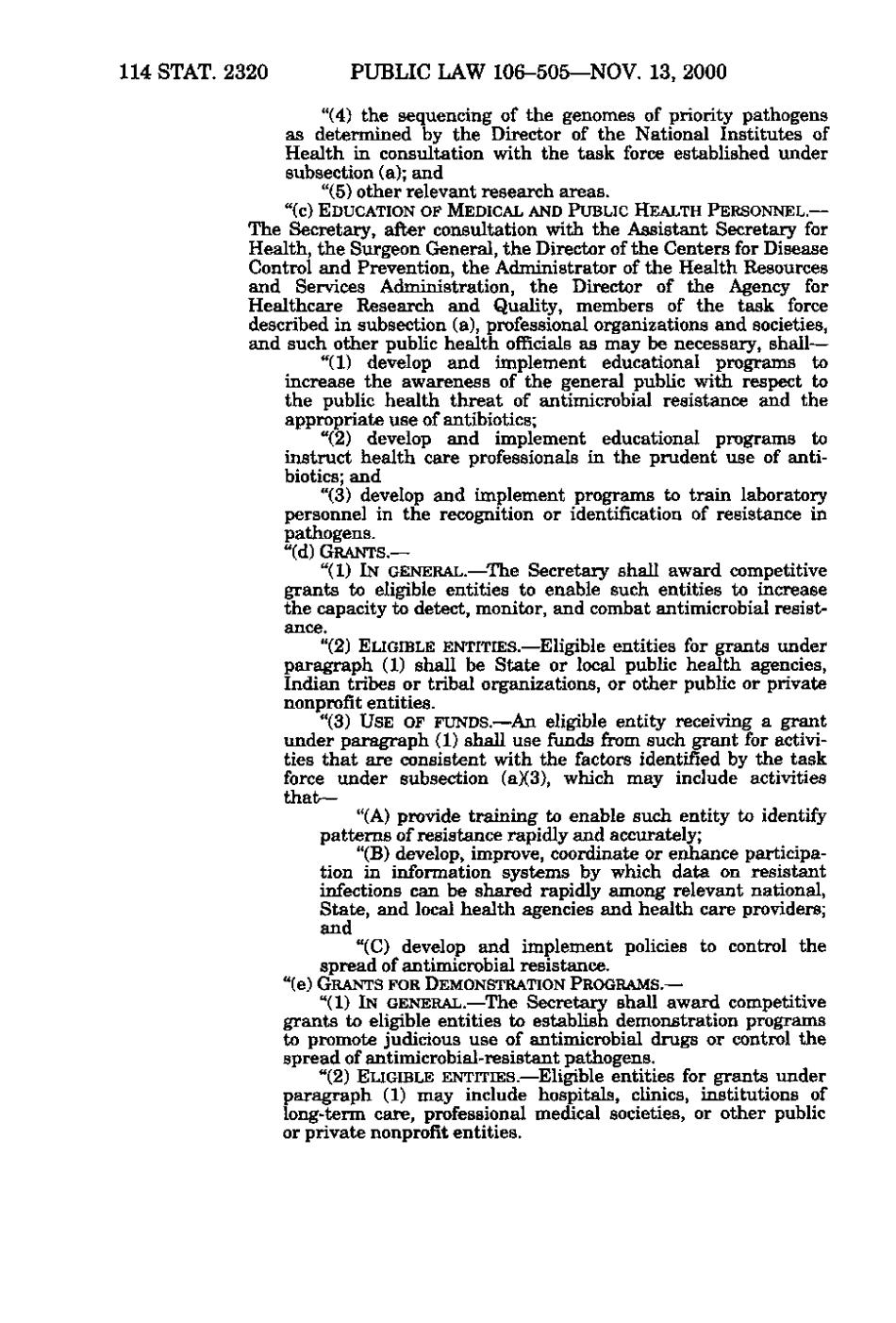114 STAT. 2320 PUBLIC LAW 106-505—NOV. 13, 2000 "(4) the sequencing of the genomes of priority pathogens as determined by the Director of the National Institutes of Health in consultation with the task force established under subsection (a); and "(5) other relevant research areas. "(c) EDUCATION OF MEDICAL AND PUBLIC HEALTH PERSONNEL.— The Secretary, after consultation with the Assistant Secretary for Health, the Surgeon General, the Director of the Centers for Disease Control and Prevention, the Administrator of the Health Resources and Services Administration, the Director of the Agency for Healthcare Research and Qusility, members of the task force described in subsection (a), professional organizations and societies, and such other public health officials as may be necessary, shall— "(1) develop and implement educational programs to increase the awareness of the general public with respect to the public health threat of antimicrobial resistance and the appropriate use of antibiotics; "(2) develop and implement educational programs to instruct health care professionals in the prudent use of antibiotics; and "(3) develop and implement programs to train laboratory personnel in the recognition or identification of resistance in pathogens. "(d) GRANTS.— "(1) IN GENERAL.— The Secretary shall award competitive grants to eligible entities to enable such entities to increase the capacity to detect, monitor, and combat antimicrobial resistance. "(2) ELIGIBLE ENTITIES. —Eligible entities for grants under paragraph (1) shall be State or local public health agencies, Indian tribes or tribal organizations, or other public or private nonprofit entities. "(3) USE OF FUNDS. — An eligible entity receiving a grant under paragraph (1) shall use funds from such grant for activities that are consistent with the factors identified by the task force under subsection (a)(3), which may include activities that— "(A) provide training to enable such entity to identify patterns of resistance rapidly and accurately; "(B) develop, improve, coordinate or enhance participation in information systems by which data on resistant infections can be shared rapidly among relevant national, State, and local health agencies and health care providers; and "(C) develop and implement policies to control the spread of antimicrobial resistance. "(e) GRANTS FOR DEMONSTRATION PROGRAMS.— "(1) IN GENERAL. — The Secretary shall award competitive grants to eligible entities to establish demonstration programs to promote judicious use of antimicrobial drugs or control the spread of antimicrobial-resistant pathogens. "(2) ELIGIBLE ENTITIES. — Eligible entities for grants under paragraph (1) may include hospitals, clinics, institutions of long-term care, professional medical societies, or other public or private nonprofit entities.
�
